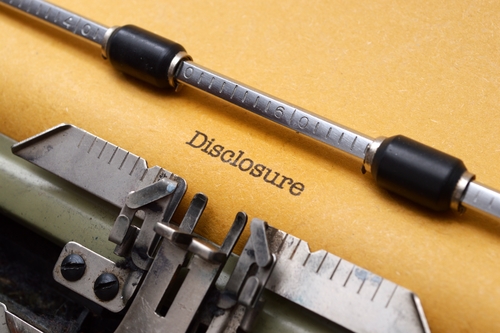
Settlement or closing is the final stage when buying a property. This takes place after you've negotiated a sale price with the seller, and completed the home inspection and appraisal. You'll attend closing at a title company or a real estate attorney's office, and upon signing the paperwork, you'll get the keys to your new place. Before you get to this point, your mortgage lender is required to give you a Closing Disclosure form at least three days prior to closing. This form is similar to the Loan Estimate you received when you applied for the mortgage. But while the Loan Estimate provides a rough estimate of your loan terms and costs, the Closing Disclosure form has your final terms and costs. The Closing Disclosure is a new form that borrowers began receiving in October 2015. Prior to receiving this form, they were given a final Truth-in-Lending form and a HUD-1 Settlement Statement. The Closing Disclosure combines information from both of these forms and it’s designed to alleviate any surprises at closing. Borrowers are given sufficient time to familiarize themselves… Read more

Some people are determined to live their American dream and they’re willing to do whatever it takes to purchase a bigger home. But unfortunately, some of these same people make the mistake of buying more house than they can afford, and they end up house poor. Only you can decide the best time to upgrade to a bigger home and a bigger mortgage. The problem with upgrading is that we often don’t know what our new costs will be until after we’ve moved into a new place. Nonetheless, there are clues to help you decide the right time to move into a bigger mortgage. You’re consistently saving money every month One indication that you're ready to upgrade to a bigger mortgage is having disposable income and consistently saving every month. You should never upgrade to a bigger mortgage at the expense of saving money. When you move into a bigger house, not only do you have to worry about a higher mortgage payment, but also higher utility costs and maintenance costs. Closely examine your budget to see how much you’re… Read more

VA home loans are available to veterans, active duty military service members and qualifying spouses. This loan offers different repayment options like other types of mortgages, including 15, 20 and 30-year terms, plus the option of a five-year adjustable-rate mortgage. But even if you're eligible for a VA home loan, there's no rule that says you have to take advantage of this program. You might shop around and research other loans, such as a conventional loan or an FHA home loan. Every loan program has attractive features, but if you’re looking to save thousands on your mortgage, a VA home loan maintains the upper hand. No money down option A VA mortgage is one of the best programs around because these loans don't require a down payment from borrowers, although you're always free to give your lender cash toward the purchase. A down payment reduces the amount you need to finance and it can help you negotiate a better interest rate. Additionally, skipping a down payment can save you thousands of dollars when buying a home. Take a conventional loan… Read more

If you want to buy a house, the sooner you gather your financial paperwork, the sooner you can apply for a mortgage. A home is a major purchase, and since the bank is lending hundreds of thousands of dollars, you’ll have to provide the loan officer with countless documents. In fact, the amount of paperwork involved with a home purchase is more than what most landlords request. It doesn’t matter who you are or what you do, you’ll have to supply copies of your tax returns for the past two years as evidence of consistent income, plus you’ll need to hand over your pay stubs from the past 30 days. The lender also pulls your credit report and reviews your bank statements for the past two months to get an idea of how much you have in reserves for your down payment and closing costs. This information is usually enough to assess whether you qualify for a mortgage. But sometimes, underwriters request additional information from borrowers. If this happens to you, there’s no reason to panic. It’s the underwriters job… Read more

Divorces are complicated and messy, especially when spouses have to divide assets and reach other financial agreements. If you owned a home together, you have to make decisions regarding the mortgage. Getting a divorce doesn't automatically dissolve a home loan. So it’s important to understand your options. 1. Sell the house Selling a home is one of the fastest ways to dissolve a joint mortgage, so that neither party is responsible for the property. The problem, however, is that there’s no way to predict how long it’ll take to sale the property. It could sell in a couple of weeks or a couple of months, which means you could be married to the mortgage long after the divorce finalizes. But once the house sells, you can split the profit and go your separate ways. 2. Refinance the mortgage and keep the home Sometimes, one spouse chooses to keep the family home after a divorce. This is doable, but it can get tricky when there’s a joint mortgage involved. If both of your names appear on the mortgage, and one of… Read more







